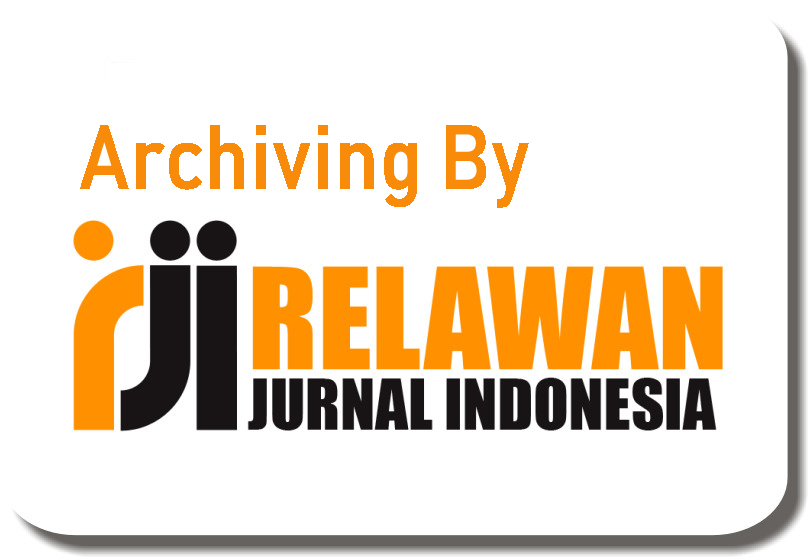Multifaceted Challenges Encountered by English for Specific Purposes (ESP) Lecturers in the Context of Pedagogical Instruction: A Comprehensive Case Study
Abstract
Keywords
Full Text:
PDFReferences
Aglen, B. (2016). Pedagogical strategies to teach bachelor students evidence-based practice: A systematic review. Nurse Education Today, 36, 255-263.
Agustina, T. (2014). English for specific purposes (ESP): An approach to English teaching for non-English department students. Beta: Jurnal Tadris Matematika, 7(1), 37-63.
Aizawa, I. (2024). Tracking the first-year experience in English medium instruction: A pre-post study of transitional challenges. English for Specific Purposes, 73, 20-32.
Alam, M. K. (2021). A systematic qualitative case study: questions, data collection, NVivo analysis, and saturation. Qualitative Research in Organizations and Management: An International Journal, 16(1), 1-31.
Alhaj, A. A. M., & H Albahiri, M. (2020). Using Pedagogic Video to Enhance English for Specific Purposes Teaching Program (ESP) for Saudi University Students: A New Prospective Approach. Arab World English Journal (AWEJ) Special Issue on CALL, (6).
Al-Hawamdeh, B. O. S., Hussein, N., & Abdelrasheed, N. S. G. (2023). Portfolio vs. summative assessment: impacts on EFL learners’ writing complexity, accuracy, and fluency (CAF); self-efficacy; learning anxiety; and autonomy. Language Testing in Asia, 13(1), 1-29.
Alsamadani, H. A. (2017). Needs analysis in ESP context: Saudi engineering students as a case study. Advances in Language and Literary Studies, 8(6), 58-68.
Alshuraiaan, A. (2023). Exploring the Relationship between Teacher-student Interaction Patterns and Language Learning Outcomes in TESOL Classrooms. Journal of English Language Teaching and Applied Linguistics, 5(3), 25-34.
Anthony, L. (2018). Introducing English for specific purposes. Routledge.
Arifin, S. R. M. (2018). Ethical considerations in qualitative study. International journal of care scholars, 1(2), 30-33.
Block, K., Cross, S., Riggs, E., & Gibbs, L. (2014). Supporting schools to create an inclusive environment for refugee students. International Journal of Inclusive Education, 18(12), 1337-1355.
Bor, S. E. (2014). Teaching social media journalism: Challenges and opportunities for future curriculum design. Journalism & Mass Communication Educator, 69(3), 243-255.
Castleberry, A., & Nolen, A. (2018). Thematic analysis of qualitative research data: Is it as easy as it sounds? Currents in pharmacy teaching and learning, 10(6), 807-815.
Emmitt, S., & Ruikar, K. (2013). Collaborative design management. Routledge.
Enesi, M., Vrapi, F., & Trifoni, A. (2021). Challenges of teaching and learning the English language for ESP courses. Journal of Educational and Social Research, 11(4), 213-226.
Faltis, C. J., & Valdés, G. (2016). Preparing teachers for teaching in and advocating for linguistically diverse classrooms: A vade mecum for teacher educators. Handbook of research on teaching, 549-592.
Fitria, T. N. (2020). Teaching English for Specific Purposes (ESP) to the Students in English Language Teaching (ELT). Journal of English Teaching Adi Buana, 5(01).
Flowerdew, L. (2012). Needs analysis and curriculum development in ESP. The handbook of English for specific purposes, 325-346.
Gestanti, R. A., Nimasari, E. P., & Mufanti, R. (2019). ESP Issue in Indonesian tertiary context: What students need in learning English. PUPIL: International Journal of Teaching, Education, and Learning, 3(1), 98-117.
Iswati, L., & Triastuti, A. (2021). Voicing the challenges of ESP teaching: Lessons from ESP in non-English departments. Studies in English Language and Education, 8(1), 276-293.
Jande, L. V., & Ibrahim, N. M. (2021). Challenges of teaching ESP: A review. LSP International Journal, 8(2), 1-8.
Joseph, C., Rahmat, M., Syed Yusuf, S. N., Janang, J. T., & Madi, N. (2023). The ethical value disclosure index from the lens of SDG 16 and institutional theory. International Journal of Ethics and Systems, 39(3), 612-628.
Li, Y., Ma, X., Zhao, J., & Hu, J. (2020). Graduate-level research writing instruction: Two Chinese EAP teachers’ localized ESP genre-based pedagogy. Journal of English for Academic Purposes, 43, 100813.
Luo, J., & Garner, M. (2017). The challenges and opportunities for English teachers in teaching ESP in China. Journal of Language Teaching and Research, 8(1), 81.
Molinari, G. (2016). ELT teaching quality and practice in Saudi Arabia: A case study of the perspectives of ESP and EGP students, teachers and managers at the ELC in Umm al-Qura University.
Molinari, G. (2016). ELT teaching quality and practice in Saudi Arabia: A case study of the perspectives of ESP and EGP students, teachers and managers at the ELC in Umm al-Qura University.
Nguyen, T. C. N. (2017). Aligning English for Specific Purposes (ESP) curriculum with industry needs: Language practices for Vietnam's globalized workplaces (Doctoral dissertation, Queensland University of Technology).
Onwuegbuzie, A. J., Frels, R. K., & Hwang, E. (2016). Mapping Saldana's Coding Methods onto the Literature Review Process. Journal of Educational Issues, 2(1), 130-150.
Rottmann, J. (2014). Reading Beyond the Last Page: Understandings of Teachers' Experiences in Book Clubs and Pedagogical Links (Doctoral dissertation, Université d'Ottawa/University of Ottawa).
Sileyew, K. J. (2019). Research design and methodology. Cyberspace, 1-12.
Sommer, M., Figueroa, C., Kwauk, C., Jones, M., & Fyles, N. (2017). Attention to menstrual hygiene management in schools: An analysis of education policy documents in low-and middle-income countries. International Journal of Educational Development, 57, 73-82.
Suadi, S., Hanida, R. S., & Siregar, P. (2022). Teachers’ Perceptions on the Literacy Skills of 5th Grade Primary School Students During Covid-19 Pandemic in Mandailing Natal Regency. Jurnal Kependidikan: Jurnal Hasil Penelitian dan Kajian Kepustakaan di Bidang Pendidikan, Pengajaran dan Pembelajaran, 8(2), 397-406.
Sutton, J., & Austin, Z. (2015). Qualitative research: Data collection, analysis, and management. The Canadian journal of hospital pharmacy, 68(3), 226.
Tao, J. T., & Gao, X. A. (2018). Identity constructions of ESP teachers in a Chinese university. English for Specific Purposes, 49, 1-13.
Watson, J., & Callingham, R. (2014). Two-way tables: Issues at the heart of statistics and probability for students and teachers. Mathematical Thinking and Learning, 16(4), 254-284.
Zein, S., Sukyadi, D., Hamied, F. A., & Lengkanawati, N. S. (2020). English language education in Indonesia: A review of research (2011–2019). Language Teaching, 53(4), 491-523.
DOI: https://doi.org/10.31004/jele.v8i2.452
Refbacks
- There are currently no refbacks.
Copyright (c) 2023 Dina Syarifah Nasution, Hermawati Syarif, Yetti Zainil

This work is licensed under a Creative Commons Attribution-ShareAlike 4.0 International License.



